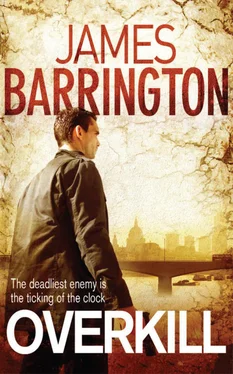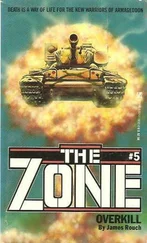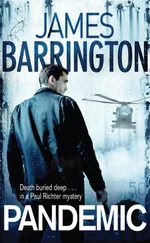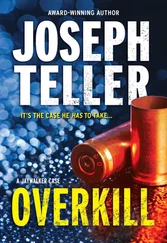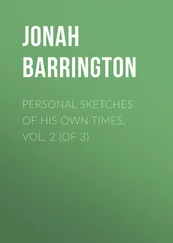He paused and looked down at the Englishman. ‘The point, you see, is that I will get the answers I need. I always get the answers. How much pain it costs you is up to you, but I will get the answers. Now, I am going to leave you for a few minutes while you think about what I have said. You must choose, not me.’
He stood up, walked over to the two white-coated figures waiting in the corner and spoke softly to them, then left the room. As soon as he had gone, the technicians moved two trolleys over to the table, and left them in the clear sight of the captive. Each displayed an array of medical equipment – saws, knives and scalpels – as well as more utilitarian tools – pliers, screwdrivers, soldering iron, bolt-cutters and a blowlamp. The Englishman had no doubts about why they had been left there, just as he had no doubt that the interrogator would use any or all of the equipment to obtain whatever information he wanted.
About five minutes later the door opened and the interrogator entered, followed by a white-coated figure carrying a small black bag and a stethoscope, and walked straight to the table. ‘Now, to business,’ he said. ‘I enjoy my work, and I am very good at it, but I would still rather avoid all the unpleasantness of the physical side.’ He waved his hand at the two trolleys. ‘So, what have you decided? If you help me, I, or my medical friend here, will end it all for you with a simple injection. If not, well, you know what will happen.’
The Englishman was no coward, but neither was he stupid. Faced with a terminal situation, from which there was clearly no possibility of escape, there was only one choice. ‘I’ll answer any questions you ask,’ he said, his voice choked with fear.
‘Good, good.’ The interrogator sounded gratified. He sat down on the plastic chair, picked up his clipboard, selected a particular page on it and began the questioning. Two minutes later he sat back, then stood up. He did not look pleased. ‘That is not what I wanted to hear. I do not think you realize the gravity of this situation. I have explained the options to you, but I must have the information I want.’
The captive shook his head desperately. ‘But I don’t know the answers,’ he shouted. ‘I’m trying to answer your questions, but if I don’t know the answers, how can I?’
The interrogator looked at him coldly, then smiled again and resumed his seat. ‘Well, let’s try once again, shall we? But this time, you really must help me.’ Again the questions began, but again the answers did not satisfy the interrogator, and after a few minutes he stood up and shook his head sadly. ‘I thought you were going to be sensible about this, but I was wrong. I told you that I must have this information, and you will tell me – now or later.’
The Englishman shouted again, naked terror in his eyes. ‘I’ll tell you anything you want – everything that I know. But these questions – I don’t know what you’re talking about.’
The interrogator looked down at him and patted his shoulder gently. ‘We shall see,’ he said softly. ‘We shall see.’ He stepped across to the wall next to the interrogation table, reached up and clicked on two switches marked, in Cyrillic script, ‘video’ and ‘audio’. Directly above the table, two red lights winked on, showing that the video camera and tape recorder were operating. The interrogator nodded, walked across to the corner of the room, selected a waterproof apron from a peg, and put it on. He motioned to the technicians and the doctor, and they followed his example.
The captive on the table began to scream. The interrogator looked over at him and issued a swift command to one of the technicians, who walked over to the table and roughly applied a sticking-plaster gag. The doctor sat down at the captive’s left side, and attached a blood-pressure cuff to the Englishman’s arm. He opened his bag and prepared a number of injections, principally stimulants, and taped his stethoscope microphone to the man’s chest. With his preparations complete, he nodded to the interrogator.
The technicians waited expectantly by the trolleys, looking at the captive with all the compassion of a couple of butchers contemplating a side of beef. Finally, the interrogator sat down again on the plastic chair and leaned close to the Englishman, who was still trying to scream, even through the gag. ‘Quiet, now,’ he said. ‘You have had your chance to act sensibly. Now you must face the consequences.’
The interrogator spoke briefly in Russian, and leaned forward to watch as the technicians began their work. He enjoyed assessing the resilience of his subjects, and this man, he was certain, would be easy to break. Four minutes later the captive passed out. When the doctor had revived him, the technicians started again. Then they tore off the gag and the questioning began. The answers still didn’t please the old man with the innocent blue eyes, so he stepped back from the table and motioned the technicians back to work. When the captive had stopped screaming, the grey-haired man asked him exactly the same questions again.
A little over two hours later they stopped. The captive had mercifully gone into massive shock, and no efforts by the doctor or the technicians had the slightest effect. The interrogator stood and looked down at the wreck of the man on the table for a long moment. Then he selected a thin steel probe from one of the instrument trolleys, and carefully pushed it through the captive’s left eyeball and deep into the brain cavity. For good measure, he did the same to the right eye. He pulled out the probe and tossed it back on the instrument trolley, then turned to the chief technician. ‘Get rid of it,’ he said.
Officially, the Komitet Gosudarstvennoy Bezopasnosti , the KGB, has ceased to exist, and certain parts of the organization’s old headquarters building at number 2 Lubyanskaya ploshchad – formerly Dzerzhinsky Square – are even open to parties of tourists during the day. The tourists are not allowed into any sensitive areas of the building, and the impression given by their guides is that the huge structure is just a shell, no longer used for any important purposes, a monument to an evil past that has no place in modern, post- glasnost , Russia. But, as with so many things in Russia, past and present, the official position differs markedly from reality. Certainly, the KGB has officially ceased to exist, but a new organization, the Sluzhba Vneshney Razvyedki Rossi or SVR, has inherited its mantle – or at least that of the First Chief Directorate – with virtually no visible changes apart from the new name. The SVR occupies the former KGB’s sixty-acre office complex at Yazenevo, located close to the orbital ring road in Moscow’s southern suburbs, and virtually all the personnel now employed by the SVR are ex-KGB staff, many still in their original offices and doing precisely the same jobs.
In fact, the old building in the heart of Moscow is still used, outside what might be termed visiting hours, for purposes little different from those that characterized the heyday of the KGB. Number 2 Lubyanskaya ploshchad has a grandeur and a presence that is lacking in the featureless new complex, and many of the more senior officers much prefer to operate from it when their duties permit. It is also useful for clandestine meetings or covert actions that would not be practical, or even possible, at Yazenevo.
The grey-haired man left the cellar after removing his waterproof apron and blood-splattered white coat, and ascended in the lift to the third floor. He walked down the light green painted corridor, his shoes rapping on the parquet flooring, then paused and entered a room after a perfunctory knock. He carried the clipboard upon which he had made copious notes in both English and Cyrillic script during the interrogation. The audio tapes would be transcribed later, and the video tape was nestling in his jacket pocket, ready to be hand-delivered to a Ministerial address later that day, but his verbal report of the interrogation was required immediately.
Читать дальше
